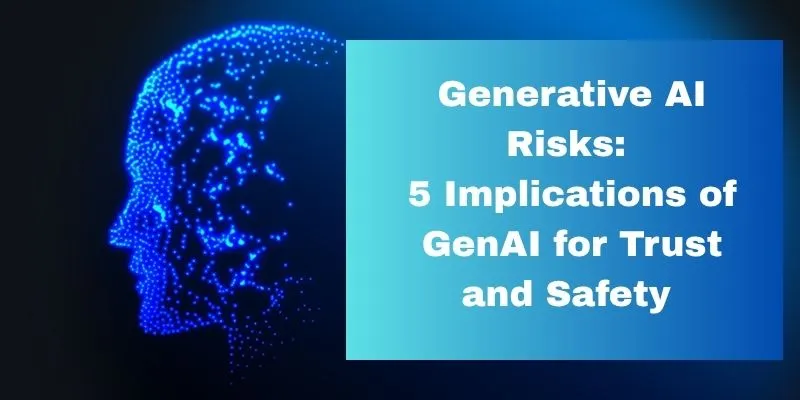Sports have always thrived on skill, effort, and dedication. Athletes tirelessly work to enhance their performance and stay ahead of the competition. However, the sports industry is now witnessing the emergence of a new game-changer: artificial intelligence (AI). AI in sports is no longer a distant concept; it has become a crucial tool for performance analysis and strategy development.
From tracking player movements to aiding coaches in decision-making, AI is revolutionizing how games are played and managed. This article delves into how AI in sports is transforming performance analysis and strategy, significantly impacting modern sports practices.
The Role of AI in Sports Performance Analysis
Performance analysis is central to sports, guiding teams in training and competition. Traditionally, coaches and players have relied on video replays, statistics, and post-game reviews to find areas for improvement. However, these methods often fall short in today’s fast-paced, competitive environment. AI in sports introduces a fresh perspective, revolutionizing both data collection and utilization.
Modern AI systems can process massive amounts of real-time data during training sessions or live matches. Wearable devices track metrics like speed, heart rate, movement patterns, and distance covered. This raw data is fed into AI tools that identify subtle patterns—often missed by the human eye—such as slight changes in posture or early signs of fatigue.
One of AI’s most significant advantages in sports is its ability to personalize training plans for individual athletes. Instead of a one-size- fits-all approach, AI analyzes personal data, including sprint speed, injury history, and recovery time, to create tailored workout plans.
AI-driven video analysis is another revolutionary tool. It dissects every moment of a match, highlighting critical actions like tackles or passes. This provides players and coaches with a clearer understanding of strengths and areas needing improvement, making practice sessions more focused and effective.
Strategy Development through AI-Powered Insights
Performance analysis is only part of the equation. The true advantage of AI in sports emerges when this analysis informs strategy development. Crafting a winning game plan requires in-depth knowledge of the opponent’s style, playing conditions, and team members’ abilities. AI helps teams move beyond guesswork.

AI systems can analyze historical match data of rival teams, identifying patterns in their play. For instance, in basketball, AI might detect that a player favors shooting from the left side of the court, allowing teams to adjust their defensive strategy accordingly. In cricket or baseball, AI can suggest optimal field placements based on an opponent’s hitting patterns.
AI-powered simulations enable coaches to test different strategies in virtual environments, providing a risk-free space for experimentation. Teams can adjust formations, tactics, and player positioning to find the best possible strategy before a real match.
Furthermore, AI in sports offers real-time feedback during games. Data collected from sensors or cameras is analyzed instantly, providing coaches with alerts about player fatigue, potential injuries, or areas of vulnerability. Quick decisions can be made to substitute players, adjust tactics, or change formations, increasing the likelihood of success.
AI Enhancing Fan Experience and Sports Management
AI in sports not only benefits athletes and coaches but also reshapes the fan experience and sports management. AI-powered performance analysis and strategy tools offer deeper insights for commentators and broadcasters, making game analysis more engaging for viewers.
Sports management teams leverage AI for ticket pricing, marketing campaigns, and fan engagement. AI systems analyze fan behavior, preferences, and spending patterns to create personalized experiences. For instance, fans might receive customized highlights of their favorite player or merchandise recommendations based on their interests.
AI-based predictive models assist in scheduling matches, maintaining stadium facilities, and managing player transfers. AI tools can forecast weather conditions, attendance trends, and financial risks, enabling sports organizations to make informed decisions.
Data security and privacy are crucial, especially when handling sensitive athlete information. Sports organizations must ensure AI systems comply with privacy standards while delivering valuable performance analysis and strategy insights.
The Future of AI in Sports Performance Analysis and Strategy
The future of AI in sports is promising, with continuous advancements on the horizon. As technology evolves, we can anticipate even more precise performance analysis and sophisticated strategy tools. AI systems will likely become more integrated with everyday sports equipment, from smart shoes to AI- driven cameras offering a 360-degree field view.

Virtual reality (VR) and augmented reality (AR) will complement AI to create immersive training environments. Athletes may train in virtual simulations replicating real-game conditions, allowing them to practice strategies without physical strain.
AI in sports will also play a larger role in injury prevention. Predictive analytics will help medical teams detect early signs of stress or overuse in athletes, extending careers and maintaining peak performance over time.
Sports strategy will become increasingly data-driven, with AI helping teams adapt to changing conditions faster than ever before. Real-time communication between AI systems, players, and coaches will be seamless, creating dynamic strategies that evolve during a match.
Despite these benefits, it’s essential to remember that AI is a tool, not a replacement for human judgment. The passion, creativity, and instinct of players and coaches remain at the heart of sports. AI simply provides the information needed to make smarter decisions and achieve better results.
Conclusion
AI in sports has become an indispensable tool for enhancing performance analysis and strategy. It aids athletes in training smarter, prevents injuries, and supports coaches in making informed decisions. Beyond the field, it enriches fan engagement and helps sports organizations operate efficiently. While AI provides valuable data and insights, the essence of sports will always be human passion and effort. The future of AI in sports looks bright, offering new ways to achieve success while respecting the spirit of the game.
 zfn9
zfn9























